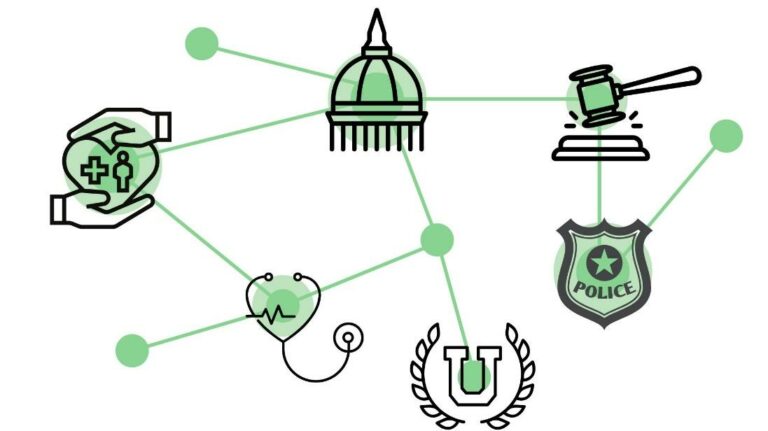
For almost 50 years, the decision on Roe v. Wade protected abortion rights at the federal level. Now, with that critical ruling overturned, abortion access across the country hinges on state and local legal decisions. The debate around abortion is informed by science, medicine, and public health, as well as ethics. Many people with STEM backgrounds feel compelled to get involved. While advocacy at the federal level continues to play a role, this issue also highlights how important it is to engage locally. One way to do this is to have critical conversations with your friends, family, and other members of your community. Additionally, many parts of state and local government directly impact policy around abortion and other reproductive health issues. We hope that the information in this post can serve as a guide for anyone looking to engage in this important policy discussion.

Elected representatives create legislation that becomes state law. This includes laws that restrict or expand abortion access. Other types of legislation can also impact abortion services. For example, some states have passed laws that protect people who cross state lines to seek abortions. State laws also dictate how abortion laws are enforced, and how investigations are conducted. Legislation can also indirectly impact access to abortion and other reproductive health services, for example by creating or expanding training for health professionals, approving changes to the budget for related public health services, or regulating what public or private insurance plans can cover.
How can you engage with your state legislature?

There are multiple parts of state and local legal systems which influence how laws are enforced.
State Attorneys General
The attorney general is the top legal officer of a state. Attorneys general provide counsel to state legislatures and agencies and represent the public interest of the state in legal proceedings. They often have significant say over the state’s approach to law enforcement, and may have influence over the extent to which an abortion ban is enforced. They could also choose to either challenge or defend the legality of abortion laws in court. Attorney generals across multiple states may form coalitions, as happened recently around the issue of abortion rights protections.
State Court System
The state court system is responsible for hearing cases, including interpreting the constitutionality of state laws. Similar to the federal system, the state supreme court is usually the highest court. State supreme courts will have important roles in determining whether the state constitution protects abortion rights, and in deciding whether laws that impact abortion access are legal.
District Attorney
The district attorney is the chief prosecutor who represents the state in criminal proceedings for a particular district or county. Depending on the geographic area of jurisdiction, these officials may also go by the title of state’s attorney, prosecuting attorney, or county attorney. These officials are responsible for investigating and prosecuting individuals who break state laws, including abortion laws. They have leeway in deciding which cases will be prosecuted.
How can you engage with your local legal system?

Police play a role in enforcing abortion restrictions, including investigating allegations of activity that violates state abortion legislation, as well as filing charges and making arrests.
How can you engage with your local police force?

Public health departments at the state and local level may be involved in various aspects of abortion access or abortion regulation. These can include collecting and analyzing data on abortion procedures, facilitating linkages to abortion services, or to abortion alternatives, and creating training programs for healthcare providers. These departments are also involved in developing policies around issues such as abortion care, abortion referrals, and abortion data access, creating content for state-mandated counseling requirements, enforcing state regulations on abortion facility requirements, and running sex education/family planning programs.
How can you engage with your state or local public health departments

State medical boards are responsible for issuing licenses to practice medicine, investigating complaints against physicians, and disciplining doctors who violate the law. As such, in some states they may be involved in enforcing anti-abortion legislation. State medical boards can also issue rules around related medical practices such as telemedicine.
How can you engage with your state medical board?

While not part of the government, universities, businesses and business associations, think tanks, non-profits, and other local organizations can play a role in influencing state and local policy. Such groups often act in an advisory capacity, and may even have their own lobbying or advocacy groups. These organizations are also employers and can set policies around issues like insurance coverage. Some businesses are even offering support for out-of-state travel and other resources to expand abortion access.
How can you engage with local organizations?